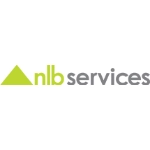© 2026 Next Level Business Services Inc. All Rights Reserved.
How GCCs in India Are Driving Business Transformation in 2025
By NLB Services
India’s GCC landscape has undergone a transformational shift. Once known as a back-office operation, it has now emerged as the nerve center of global enterprises, leading AI adoption to digital transformation, and even inspiring boardroom decisions. Over recent years, Global Capability Centers (GCCs) have evolved as a cornerstone for businesses aiming to optimize operations, drive innovation, and maintain a competitive edge amid growing digital integration and global interdependence.
GCCs are no longer just about cost savings; they now act as strategic assets that deliver significant value across numerous business functions. By improving efficiency, enhancing customer experiences, and increasing ROI, GCCs help organizations simplify business functions while maintaining affordability to achieve business transformation in India.
One of the key advantages of GCCs is that they can drive cost efficiencies. By bringing key functions to regions like India with lower labor costs and utilizing economies of scale, organizations can reduce overhead while maintaining high-quality operations.
India, as one of the preferred locations for affordable labor, friendly regulations, and top-talent resources, has emerged as the premier destination for GCCs with India’s emerging tech-ready talent of 1.9 Mn in 2024. India’s GCC presence is forecasted to expand from 1,700 GCCs in 2024 to 2,100-2,200 GCCs by 2030.
Key Trends Transforming GCCs in 2025
2025 is the year of significant transformation for Global Capability Centers (GCCs) as they continue to become strategic drivers of innovation, digital transformation, and organizational agility. Here are the most impactful trends that are shaping the evolution of GCCs:
AI-First and Automation-Driven Operations
As organizations look forward to reducing costs and avoiding wasting manpower on mundane tasks by embracing AI, GCCs are also embedding artificial intelligence (AI) and automation at the core of their strategies. AI in business is now central to decision-making, process optimization, and delivering measurable business outcomes, with automation freeing up talent for higher-value and innovative work. Similarly, predictive analytics, robotic process automation (RPA), and AI-powered tools will enable GCCs to reduce operational costs, boost productivity, and accelerate innovation cycles.
Focus on Digital Transformation and R&D
The GCCs in India have seen an overall shift in their operations as numerous GCCs are now at the forefront of innovation, R&D, and digital innovation. India, with its prominent IT capabilities and strong digital infra, has seen GCCs already extending their focus on advanced functions such as product design, development, and research to aid in data-driven decision-making.
Future of Work: Hybrid & remote work adoption in GCCs
Hybrid and remote work models will take firm roots in GCCs across India. The pandemic made it significantly clear that flexible working arrangements can be a very effective way of structuring work, and alternatively, most GCCs have adopted hybrid models that enable their employees to work for some days remotely and for other days from the office. This gives employees the power to balance their work with their personal lives and empowers firms to include professionals from smaller cities and rural areas into a demographically diverse talent spectrum of potential candidates. Digital collaboration tools and cloud platforms have ensured that work-from-home productivity remains unaffected, thus providing GCCs with a cost-effective and inclusive way of running their operations.
Talent Development and Upskilling
The GCCs in India are transforming by shifting their focus on talent development and continuous learning given that there is an increasing demand for skilled professionals. The digital technology transformation across sectors has resulted in an immense demand for professionals with skills in newer technologies, including artificial intelligence and cloud computing. India, with its massive IT workforce, is in a sweet spot for providing a large talent pool that fulfills this requirement. Also, GCCs provide multiple certificates, leadership programs, and cross-functional training to help professionals become proficient in new technologies.
Prominent Backing from the Government
Multiple states in India, such as Maharashtra, Gujarat, and Madhya Pradesh, have recently presented GCC policies to grow their attractiveness for global companies through region-specific perks and easy-to-streamline regulations. The nurturing of Global Capability Centers (GCCs) has been made possible via multiple initiatives of the Indian government, highlighted by tax relief and financial grants, as well as setting up Special Economic Zones (SEZs).
How GCCs Are Reshaping Global Business Strategies
Global Capability Centers (GCCs) are streamlining operations for business transformation in India by leveraging advanced automation and AI to drive efficiency and scalability. Gone are the days when these centers were limited to conventional outsourcing solutions; instead, they now operate as strategic hubs delivering ROI-driven models that emphasize innovation and value creation.
Organizations are working with cost-effective GCC implementation strategies in order to simplify operations, gain access to global talent, and harness next-edge technology. GCCs are prominently focused on delivering computable benefits, such as improved productivity, reduced operational costs, and accelerated decision-making.
Strategic Value Creation and Innovation
GCCs have become hubs for innovation. By leveraging advanced technologies such as AI, automation, and data analytics, they are driving enterprise-wide transformation. By deeply integrating into every facet of business strategy, they are shaping not just operations but also product development, innovation, customer experience, and market expansion. With the integration of AI and analytics, GCCs enable predictive decision-making, swift time-to-market, and personalized customer solutions.
Talent Hubs and Global Collaboration
With GCCs in India, businesses gain access to specialized, future-ready talent in areas such as AI, cloud computing, cybersecurity, and fintech. Having top talent in your arsenal is essential for digital transformation and global business expansion. Leading GCCs are now responsible for building and leading global product lines, not merely supporting them. This reflects a shift toward high-value, strategic functions that GCCs are known for.
Operational Excellence and Cost Optimization
GCCs in India bring operational efficiency through automation, process optimization, and retaining strategic functions in-house while outsourcing foundational tasks. This approach maximizes efficiency and innovation while keeping costs in check.
Agility, Scalability, and Risk Management in a Dynamic Market
Flexible GCC models allow businesses to steer through dynamic market conditions to ensure they remain resilient and responsive to ever-changing supply and demand metrics. GCCs also facilitate swift market entry and expansion, enabling enterprises to scale operations globally without incurring considerable operational costs.
Corporate Innovation and Sector-Specific Impact
With the advancements that GCCs are bringing, they are pivotal in industries such as IT, GFSI, healthcare, and pharmaceuticals by supporting R&D and innovation. GCCs go beyond operational support, they are playing a crucial role in innovation and compliance management.
Challenges & Opportunities for GCCs in India
Global Capability Centers (GCCs) in India are at a critical juncture of a promising future and substantial challenges. These centers, being an integral part of multinational companies’ global strategy, leverage India’s profound talent pool, cost-effectiveness, and established technology ecosystem. However, as they develop, several challenges and opportunities define their current and future trajectories.
Challenges
Infrastructure and Technological Readiness
Even after significant improvements in major hubs like Bengaluru, Hyderabad, NCR Delhi, and Chennai, infrastructure remains a bottleneck. Problems like power outages, inconsistent internet connectivity, and traffic congestion still persist and might hamper operational effectiveness, especially outside the leading tech cities.
Regulatory and Compliance Complexities
India’s regulatory framework is still in its evolving phase and poses its own set of challenges. GCCs need to comply with both local tax laws and increasingly complex data protection regulations. These are again compounded by emerging policies like the Personal Data Protection Bill. To stay competitive and compliant, companies need to build legal frameworks and align closely with local advisory firms; on top of that, the bureaucratic environment still demands constant adaptation.
Talent Management and Retention
India’s vast supply of STEM and technical professionals gives GCCs a competitive edge. However, retaining top talent, especially in niche areas such as artificial intelligence, data analytics, and deep tech, still remains challenging. Fierce competition between companies and centers and the fast-evolving nature of technological skills required GCCs to continuously invest in upskilling, career development, and attractive workplace cultures to lower attrition rates.
Integration and Scalability
Multiple GCCs find themselves balancing the need to adopt the latest digital solutions with legacy systems that are integrated into their operations. The process of integrating older tech with modern, cloud-based platforms often leads to compatibility challenges and a rise in operational costs.
Opportunities
Government Initiatives and Regulatory Reforms
The Government of India has lately revved up reforms to create a more business-friendly environment in the cities. For instance, increased capital expenditure, digital public infrastructure developments, and initiatives aimed at reducing bureaucratic burdens have jointly contributed to creating a conducive environment for GCCs.
Cost Competitiveness and Global Market Positioning
As operating costs are considerably lower owing to favorable currency fluctuations, GCCs offer attractive pricing models to global clients. This cost advantage, combined with high-quality service delivery, makes India an attractive destination for MNCs looking to balance cost efficiency with top-tier innovation and quality.
Emerging GCC Models and Expansion Possibilities
The evolution of GCCs and the strategic adoption of hybrid operational structures present novel avenues for expansion in India. By decentralizing operations and even engaging with local startup ecosystems and academic institutions, GCCs can create a dynamic innovation culture and build localized innovation clusters that further enhance global competitiveness.
Future Outlook: What’s Next for GCCs in India?
As you may have seen, Global Capability Centers (GCCs) in India are evolving from conventional cost-saving units to strategic innovation and business impact hubs. The future outlook of GCCs will be defined by several transformative trends and opportunities that will reshape their role in the global enterprise ecosystem and define outsourcing trends in India.
From Cost Efficiency to Business Impact Hubs
India’s GCCs will be reckoned by their contribution to business outcomes rather than just cost savings. Metrics will focus on productivity gains, product development, AI-driven automation, improved customer experience, revenue growth, and business resilience.
GCCs Becoming Global AI Powerhouses
Generative AI and advanced analytics are becoming core to GCC operations. India is emerging as a global AI talent hub, with GCCs embedding AI in business across workflows, creating Centers of Excellence, and driving AI-led decision-making at scale. The focus is shifting from AI adoption to AI innovation, to make India a backbone for enterprise AI strategies.
Expansion into Tier-II and Tier-III Cities
Though Bengaluru, Delhi, and Hyderabad remain a dominant choice, GCCs are increasingly expanding into emerging Tier-II and Tier-III cities such as Kochi, Bhubaneswar, Indore, and Jaipur. By tapping cost-effective locations and leveraging high-quality talent in these cities, GCCs not only promote development but also bring business hubs closer to the masses.
Focus on Emerging and High-Growth Sectors
GCCs are deepening their presence in new sectors such as life sciences, semiconductors, digital banking, electric vehicles, and healthcare. India is emerging as a hub for deep-tech innovation with AI-driven drug discovery, chip design, and more.
Conclusion
Global Capability Centers (GCCs) in India are driving business innovation by evolving into agile, digitally empowered business hubs that integrate new technologies like artificial intelligence, cloud computing, and machine learning with traditional cost optimization strategies.
By utilizing India’s talent pool and enhanced digital infrastructure, GCCs are streamlining global operations, spurring rapid product innovation, and optimizing supply chains, all while capitalizing on favorable government incentives and expanding into emerging markets.
This trajectory not only propels cost efficiencies but also redefines competitive strategies and innovation on a global scale, marking a decisive shift towards market leadership instead of just being back-end cost-saving rooms. Don’t miss out on more detailed insights and strategic information on GCCs—download our comprehensive report today.
Talent Solutions








